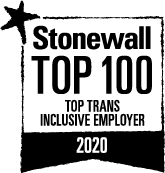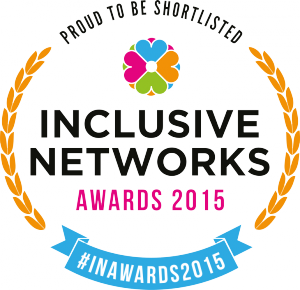Supporting trans staff: research, policy and partnership
Anna Spragg is the new Equality and Diversity Advisor at Goldsmiths, University of London. In her previous job at Imperial College London, amongst other work she led an initiative for trans staff, which involved extensive research and resulted in a policy on supporting trans staff and partnership with GIRES (Gender Identity and Research Education Society). Anna has written this guest post providing an overview of her work.
I initially did a review of the policy and practice at Imperial College in light of providing an inclusive and supportive environment for trans staff.
I contacted the LGBT staff network (Imperial 600) and the LGBT student network at the College to ask if people would like to contribute to the research. Anyone who wanted to get involved contacted me and I offered a range of ways to communicate with me, be it 1-2-1 interviews, focus groups, or even just by email (however the person felt comfortable communicating). These meetings were kept confidential and any feedback was anonymised. In the interviews I asked them a series of questions about contributors experiences at the College, both positive and negative and if there was anything that would make them feel more supported.
I also met with external stake holders, GIRES, who already delivered a fantastic training course at Imperial College called ‘trans awareness training’1. I attended several meetings with them, asked questions, put forward any ideas that I had and undertook several training courses. In addition to this I sought the advice of several other external stakeholders who identified as trans or trained on issues for trans people, to give me a well-rounded understanding of the needs of trans people both inside and outside of the College (and highlight any barriers faced).
In addition to this extensive consultation, I conducted an anonymous internal HR questionnaire to get an idea of where gaps in knowledge were on the inside and how to best support HR staff to feel confident in supporting trans staff and their managers. This was inadvertently a training needs analysis. The results of the survey (which included open text fields) highlighted the areas that Imperial College needed to do work on with HR staff and what tools might be helpful.
I used the information and knowledge that I gained from the above exercises to help inform the staff policy which I wrote with a colleague. I wanted it to be a policy that was informed by real trans people at the College who had had real experiences.
We also consolidated a number of tools which we found on the research journey which I believe will also be put on Imperial College’s website once complete. Sadly I had left the College before it has got the final approval to go ‘live’ but hopefully this will be in the near future.
With regards to the partnership with GIRES, as I mentioned before, Imperial College already had a working relationship with the charity as they had provided training, however, this relationship was strengthened by the work and consultation done in this area2.
One of the key messages that emerged from my research was that some trans people felt invisible and misunderstood and that ignorance and lack of awareness stems from this. Therefore, part of my work was centred around visibility. GIRES kindly allowed us to use their logo to communicate the partnership relationship and this helped with visibility and acts as a sign that Imperial College welcomes a diverse workforce. There was a distinct absence of an outward facing charity to support people who identify as trans (and it seemed that many people wrongly assumed that Stonewall was a charity for LGB and T people). Hence the benefits of having this outward affiliation were even more apparent. Imperial now proudly displays GIRES’ logo on its website alongside the Stonewall sign, Athena Swan, and Two Ticks Scheme, as well as using a tagline to announce the partnership working on all external advertisements. It’s a small step, but one that demonstrates commitment in the area.
1 ^ Anna referred to transgender awareness training that GIRES deliver at Imperial College London. The institution’s trans staff page also provides a link to an e-learning course (‘Transgender Awareness Training’) produced by GIRES.
2 ^ Anna referred to Imperial College London’s partnership with GIRES; for more information, see the institution’s Imperial champions diversity with sector-leading pledge to support trans staff article.









1 Response